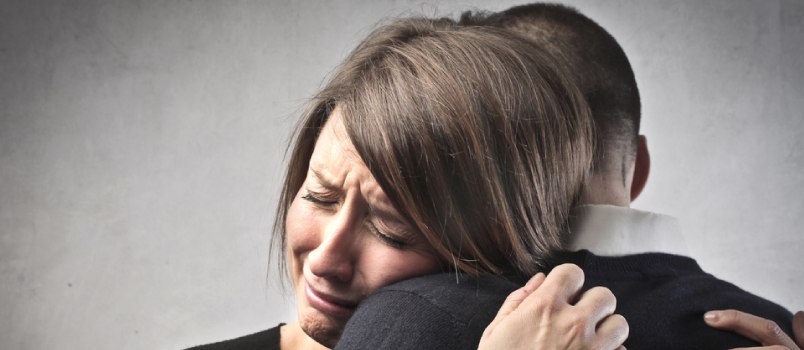How to Navigate Your Relationship When Your Partner Is Grieving

Unlock Daily 30-Sec Tips for a Happier Relationship
👉 Subscribe FREEKey Takeaways
Marriage.com AI Quick Summary
Most marriages and long-term relationships inevitably deal with one or both partners’ grief after a loss. The most common losses you and your partner may face are the death of a parent, sibling, close friend, or even a pet. When your partner is grieving, it can seem as though your relationship – your entire life together – is on hold. The shock of loss and the ensuing emotions that follow can seem endless, both to you and your partner. Although you may have great compassion, eventually you may succumb to your partner’s sadness, unavailability, disinterest, anger, irritability, or general lack of participation in the relationship after their loss. This is where you need to lean toward, rather than retreat from, the relationship. Here is how:
Know that your partner needs your relationship to help heal
Yes, need is not a popular word these days, but interdependence in long-term pairing is inherent to our biological history and helps us survive loss. Humans have relied on partnership and community to survive famine, war, and disasters for millennia, so it only follows that we have an emotional correlate to this survival mechanism- when we go through hardship, we want to rely on the stability of relationship. Although some partners may isolate themselves after a difficult loss, having a secure relationship will ultimately give them strength to integrate their loss into wisdom that may inform your relationship in unexpected ways.
In the face of your partner’s loss, you sometimes have to be the “strong” one. This is not to imply that your partner is weak during their grief, but you may have to be the one to hold the structure of the relationship – the higher cause of your relationship – while they navigate the confusing maze of bereavement.
Understand that your partner needs to grieve fully
Do not hijack the process. Grief needs to play out, and whatever you do, do not try to change or diminish your partner’s experience. Noble attempts to “cheer up,” “move on,” or “get over it” will only lead to greater dysfunction for your partner and your relationship. Grief is a natural state (even animals grieve); bypassing or suppressing it will lead your relationship to trouble.
Everyone needs to move naturally through their loss, and grieving is not a simple matter. While we often assume that grief looks like sadness, sorrow, or depression, it actually manifests in many ways. In fact, healthy grief looks like a lot of different emotions and behaviors. Yes, it usually includes deep sadness, but it also may include anger, laughter, depression, anxiety, avoidant behaviors, and sometimes moments of great joy.
To better understand your partner, imagine the deep confusion that they might feel in losing something they imagined to be permanent. The parent, sibling, or friend that has been with them for most of their lives is not just temporarily unavailable; they are gone. This may make sense to the part of our brain that can understand the world logically, but it makes absolutely no sense to our emotional memory of a loved one who was always reliably “there.” And not to complicate things, but it can get even more confusing when the relationship was difficult or created trauma; this often results in complex bereavement, delayed grief, and emerging revelations about oneself.
Understand this is not forever
If your partner has had room in the relationship to grieve it is surely going to not last forever. When we humans are in crisis, we have a tendency to believe that the crisis is forever unless we fix it, but the crisis of loss is not fixable. Time is necessary for your partner to heal.
Throughout the course of a long-term relationship, each of you will have events in your life that take priority in the relationship. You may have already had a time of transition or loss yourself, or that time may be to come. In any of these cases, remember that this is the time for you to be there without hesitation. The more present you are for your partner’s grief, the more you help the grief move as it needs to.
Keeping in mind these three factors – that your partner needs you after their loss, that your partner needs the freedom to grieve, and that this will not last forever – your relationship will not only survive; it will likely create more strength, trust, and resilience for you both.
 Tips
Tips
Write your tip or submit a video tip
All tips are reviewed before the publishing.
Share this article on
Want to have a happier, healthier marriage?
If you feel disconnected or frustrated about the state of your marriage but want to avoid separation and/or divorce, the marriage.com course meant for married couples is an excellent resource to help you overcome the most challenging aspects of being married.
Related Articles
Recent Articles
Related Quizzes
Unlock Daily 30-Sec Tips for a Happier, Healthier Relationship
👉 Subscribe FREE on YouTube We'd love your feedback!
We'd love your feedback!
 Expert Q&A
Expert Q&A
Ask your question related to this topic & get the support you deserve from experts.



















 Thanks for your feedback!
Thanks for your feedback!